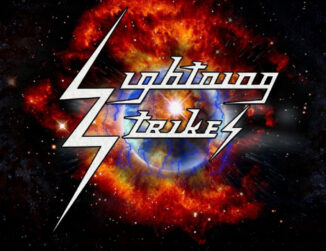
-
BLACK SABBATH - Seventh Star/The Eternal Idol Reissues - 7.5/107.5/10
Summary
Sanctuary Records
Release date: November 1, 2010
User Review
( vote)The 80s represented a decade of great turbulence for Black Sabbath. Following the spectacular rebirth of the band at the turn of the decade with Ronnie James Dio at the helm in place of original singer Ozzy Osborne, the band started unravelling over the ensuing years as members came and went with alarming regularity, and this threatened the credibility of one of Hard Rock’s most influential names.
Following the departure of Dio’s replacement, Ian Gillan for the “love it or hate it” Born Again album, it was clearly time for the band to take stock. Guitarist Tony Iommi decided to record a solo album and promptly recruited the ex-Deep Purple vocalist/bassist Glenn Hughes as one of the several proposed guest singers for the project that was slated to also include Rob Halford and Ronnie James Dio, but as it turned out the Hughes related sessions were so fruitful that he sang on all of the tracks. With a lineup bolstered by Lita Ford band members Eric Singer (later of Kiss and Alice Cooper) and Dave Spitz along with long-time keyboard player Geoff Nicholls, Iommi headed into the studio to record his first solo album.
Seventh Star was the result of the recording sessions, but to Tony Iommi’s dismay the record label insisted on putting it out not as an Iommi solo record, but under the Sabbath name. Even more bizarre… when the album finally hit the streets it was billed as “Black Sabbath Featuring Tony Iommi” to add further to the confusion.
With all the turmoil going on behind the scenes, you’d expect a real howler of an album, but Seventh Star, although not a conventional-sounding Sabbath album, had much going for it. “In For The Kill” is a fast-paced Rocker with a cracking solo from Iommi, while “Danger Zone” features a riff right out of Sabbath’s top drawer. Glenn Hughes puts in a sterling performance throughout, particularly on the classy ballad “No Stranger To Love” and the brooding title track. In fact, Glenn Hughes really shines throughout the album, putting in a strong, confident performance, which he was unfortunately unable to transfer to the stage. A matter of days into the Seventh Star US tour, Hughes was out following performances that Hughes himself called “bloody awful,” and the future the band was again in doubt.
Previously unknown, American Ray Gillen was recruited to complete the tour and his work can be heard on the bonus disc recorded at London’s Hammersmith Odeon. While the sound quality is not perfect, it does provide a fascinating document of this period. Gillen had a strong voice and carried the Dio songs particularly well, although his vocal histrionics tended to over-egg the Ozzy-era material such as “War Pigs” and “Black Sabbath”. It’s certainly interesting to hear a Gillen-fronted Sabbath running through these songs, but for completeness a couple of Glenn Hughes live tracks from earlier in the tour would have rounded things off nicely.
With Hughes out and Gillen in, Black Sabbath went back into the studio with Eric Singer and former Rainbow bassist Bob Daisley and laid down the basic tracks for what was to become The Eternal Idol. With the recordings just about complete, Ray Gillen up and left, leaving Iommi with a real conundrum. Would he release the album featuring a singer who was no longer in the band, or would he recruit a new singer and re-cut the vocals? Iommi wisely plumped for the latter bringing in former The Alliance vocalist, Tony Martin. Blessed with a voice hewn from the same rock as Ronnie James Dio, Martin provided the voice and stability that was to serve Sabbath so well for almost a decade, as Martin would go on to be the longest serving singer in the history of the band besides Ozzy.
Bearing in mind the songs were written with a different vocalist in mind, The Eternal Idol is a pretty strong release. The towering riff of “The Shining” and the thunderous “Ancient Warrior” being particular highlights. “Glory Ride” contains a riff only the likes of Iommi can pen — huge, booming and doom laden, yet dramatic and grandiose; a description that could also be applied to the stomping title track. The gentle acoustic instrumental of “Scarlet Pimpernel” lulls the listener into a false sense of security before the album’s heaviest number “Lost Forever” thunders along.
The original album is fleshed out by a couple of B-sides with the bluesy “Black Moon” being the better of the two. More interesting, however, is the inclusion of the original Ray Gillen Sessions, which, although it’s been doing the rounds amongst collectors for years, is a welcome addition to this collection. There will be those that prefer the Martin-fronted versions and others that favor Gillen’s songs, however, both have their merits and stand strongly on their own.
How the band would have developed with Gillen at the helm we will never know, as he headed off to form Badlands with Eric Singer, leaving the door open for Martin who seized the opportunity with both hands. This was certainly a solid start for Martin, who would go on to make better albums culminating in the excellent Headless Cross release in 1989.
Both Seventh Star and The Eternal Idol come in 4 panel Digi-packs, complete with original artwork and additional photos and detailed booklets with incisive liner notes completing the packages. The music on both releases has much merit and the additional bonus material makes both albums worthy additions to the Sabbath catalogue. Hopefully the hard-to-find Headless Cross and Tyr albums, both featuring Martin, will be next on the list for a long-awaited polish and re-release.




Be the first to comment